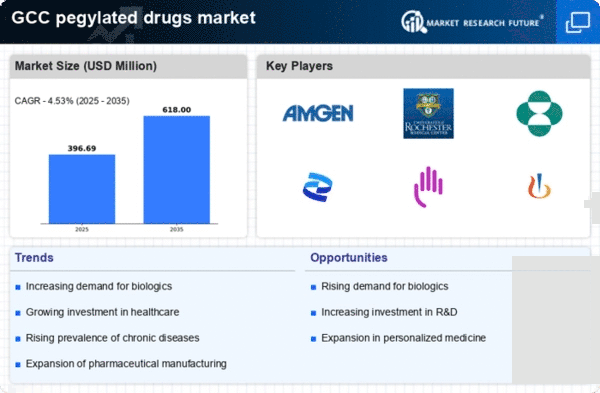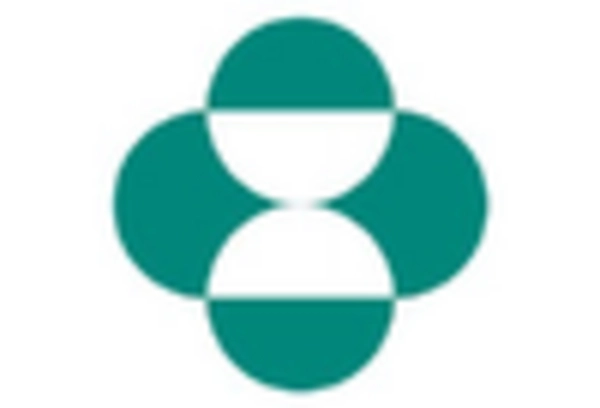Advancements in Biotechnology
Technological advancements in biotechnology are significantly influencing the pegylated drugs market. Innovations in drug formulation and delivery systems have led to the development of more effective pegylated therapies. For example, the introduction of novel pegylation techniques has improved the pharmacokinetic profiles of existing drugs, enhancing their therapeutic effectiveness. The GCC region is witnessing a surge in biopharmaceutical research and development, with investments in biotechnology expected to reach $1 billion by 2025. This growth is likely to foster the emergence of new pegylated drugs, thereby expanding the market. The pegylated drugs market stands to gain from these advancements, as they facilitate the creation of targeted therapies that meet the evolving needs of patients.
Rising Healthcare Expenditure
The increasing healthcare expenditure in the GCC countries is a significant driver for the pegylated drugs market. Governments are investing heavily in healthcare infrastructure and services, with spending projected to reach $100 billion by 2025. This investment is aimed at improving healthcare access and quality, which in turn drives demand for advanced therapies, including pegylated drugs. As healthcare providers seek to offer the latest treatment options, the pegylated drugs market is likely to experience substantial growth. The focus on innovative therapies aligns with the region's vision to enhance healthcare outcomes, making pegylated drugs a vital component of future healthcare strategies.
Increasing Prevalence of Chronic Diseases
The rising incidence of chronic diseases such as diabetes, cancer, and autoimmune disorders in the GCC region is a primary driver for the pegylated drugs market. As healthcare systems strive to manage these conditions effectively, pegylated drugs, known for their extended half-life and reduced immunogenicity, are becoming increasingly essential. For instance, the prevalence of diabetes in the GCC is projected to reach 20% by 2030, necessitating innovative treatment options. This trend indicates a growing market potential, as healthcare providers seek therapies that enhance patient outcomes. The pegylated drugs market is thus positioned to benefit from this increasing demand, as these therapies offer improved efficacy and patient compliance, ultimately leading to better management of chronic diseases.
Growing Awareness of Personalized Medicine
The increasing awareness and acceptance of personalized medicine in the GCC region are propelling the pegylated drugs market. As patients and healthcare professionals recognize the benefits of tailored therapies, there is a shift towards treatments that are specifically designed to meet individual patient needs. Pegylated drugs, with their ability to enhance drug delivery and minimize side effects, align well with the principles of personalized medicine. This trend is reflected in the rising number of clinical trials focusing on pegylated therapies, which are expected to increase by 30% over the next five years. The pegylated drugs market is thus likely to thrive as it adapts to the growing demand for personalized treatment options.
Regulatory Support for Innovative Therapies
The regulatory environment in the GCC is becoming increasingly supportive of innovative therapies, which is beneficial for the pegylated drugs market. Regulatory bodies are streamlining approval processes for new drugs, particularly those that demonstrate significant therapeutic advantages. This shift is encouraging pharmaceutical companies to invest in the development of pegylated drugs, as they can bring these therapies to market more efficiently. The GCC's commitment to enhancing healthcare innovation is evident in its initiatives to foster research and development, with funding for new drug approvals expected to increase by 25% in the coming years. Consequently, the pegylated drugs market is poised for growth as it capitalizes on this favorable regulatory landscape.
















